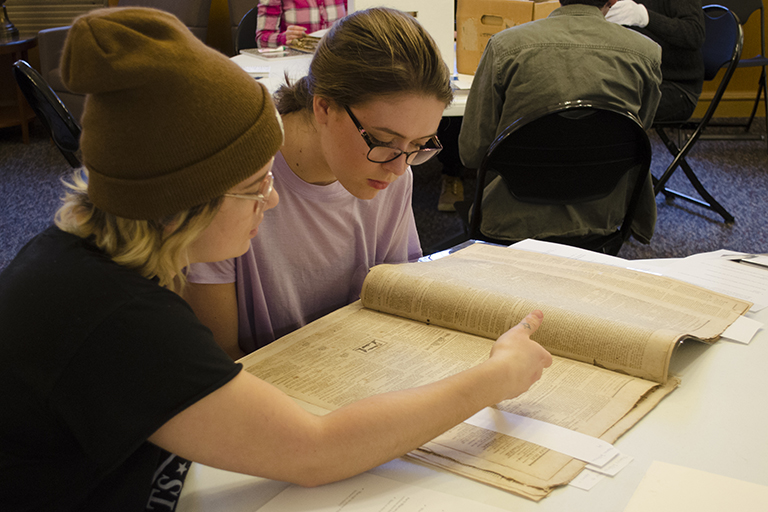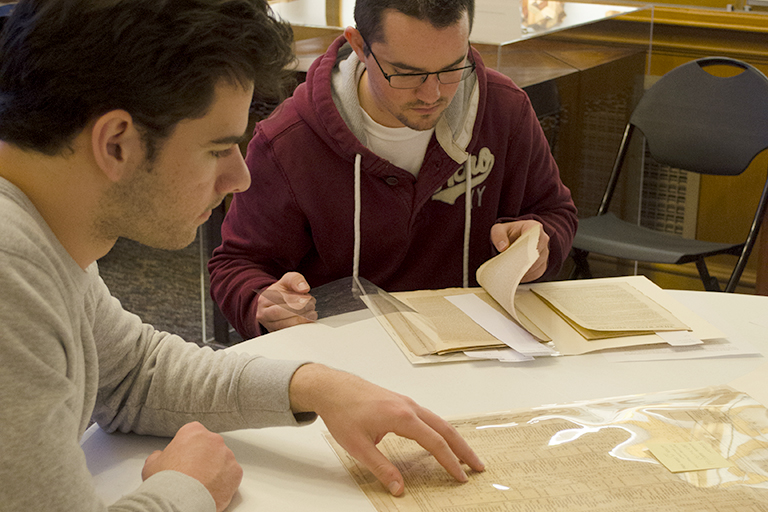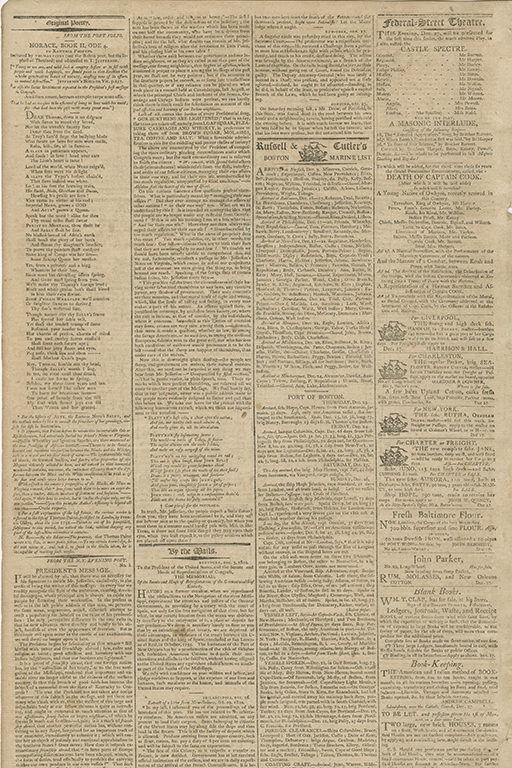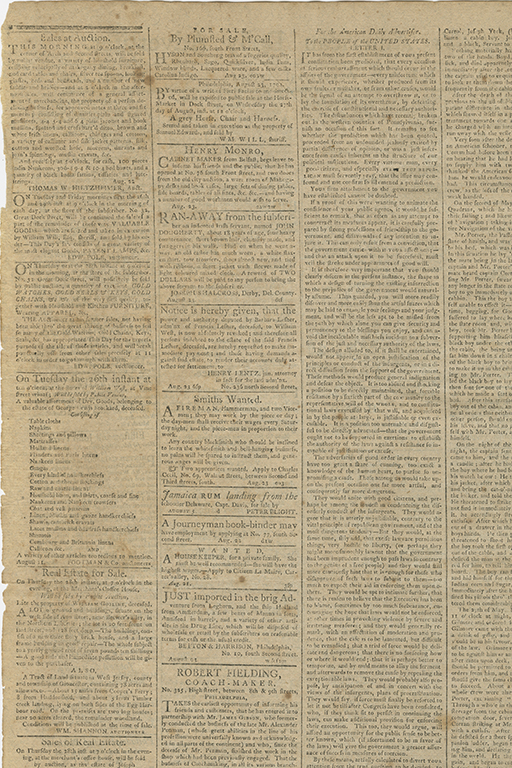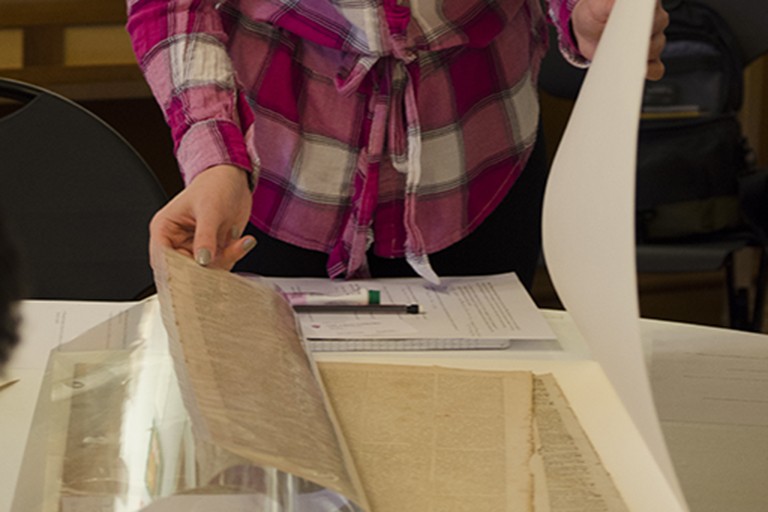Contributed by Joel Silver, Director of the Lilly Library
When the Lilly Library formally opened on the Bloomington campus of Indiana University on October 3, 1960, it held a remarkable and renowned collection of rare books and manuscripts. With particular strengths in the humanities and social sciences, the Library began to draw researchers and visitors from the campus and from around the world, and in the nearly sixty years since its founding, it has continued to grow and to make its resources available to all who wish to use them.
The collections of the Lilly Library have expanded in many ways since its founding, and like every great special collections library, the Library is a "collection of collections," as new collections formed by private collectors who specialized in various fields have been added to the Library's original holdings. Among the important collections added to the Library in recent years is the "Jonathan Krause Rare Newspaper and Magazine Collection," which spans the mid-seventeenth through the late-nineteenth centuries, and has a special focus on late-eighteenth- and early-nineteenth-century American publications. There is a very strong concentration on newspapers and magazines that includes the writings of the “Founding Fathers” of the United States, including George Washington, Thomas Jefferson, John Adams, Alexander Hamilton, James Madison, Benjamin Franklin, and Thomas Paine. There are also a number of earlier newspapers and magazines relating to the American Revolution, and a focus on later American history including slavery and abolitionism, Abraham Lincoln and the Civil War.
The Lilly Library's printed and manuscript holdings related to American history are extensive, including a large number of materials related to the "Founding Fathers." But most scholars have studied early monographic publications rather than periodicals, and the dissemination of the writings of these major figures in newspapers and magazines has often been overlooked by historians. These periodicals were far less expensive to their original purchasers than were books and pamphlets, and the essays, letters, speeches, and excerpts from larger works, which were often published in these periodicals, could reach reading audiences who were unable to afford the more costly monographic volumes.

